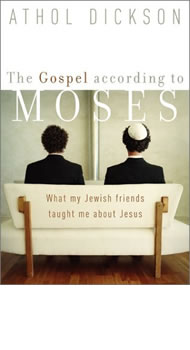The following is an excerpt from the new forward to this story of fear and love.
You are holding part of a human life. That is what a novel is to a novelist, because while we write, we live what we write. To succeed at the art of literature, we novelists must invest our lives within the world created by our words just as surely as other people immerse themselves within the worlds of those they love. The difference is, while other moments flow through us and around us and then on behind us into a history which only memory can touch, for a novelist the minutes, hours, weeks and months of life lived in the writing of a book will remain in place forever. Anyone can step into this part of my life at any time. Indeed, if you keep reading you will do exactly that.
Experience is the best teacher, and like most older people I sometimes think how wonderful it would be if I could take what I have learned over the years and go back in time to have a “do-over.” To be young again, while somehow retaining the wisdom of experience that can only come with age, would be the very definition of a golden opportunity.
Now, finally, I’ve had a chance to do exactly that.
I just completed a major rewrite of this novel, which was first published over a decade ago. I have gone back that far in time to relive the minutes, hours, weeks and months of life encapsulated in They Shall See God, and this time as I lived through the experience within these pages I was guided by everything my life as a novelist has taught me in the years since this story was first written.
I hasten to mention there was nothing very wrong with the life lived in this novel the first time. They Shall See God was well received by professional critics and more importantly, by its readers. But it is a fallen world, so I believe nothing created by a human being is beyond the possibility of improvement, and like most novelists I have often wished I could go back and make a subtle change to this sentence or that paragraph. Unfortunately, in years past the cumbersome publishing process made it much too expensive for an author to revisit his work, so once a novel made it into print it became a kind of time capsule, forever frozen as it was. But we live in remarkable times. Because of a revolution in technology—electronic readers, digital printers, and so forth—nothing could be easier than to make a change to a novel today and put the new and improved version in the hands of a reader tomorrow.
So I thought, “Why not?”
When I embarked on this project, I assumed it would be mainly a matter of enhancing the craftsmanship. To improve the way the plot flowed, I worked on the transitions between some scenes, repositioned a few others, and combined some scenes together. I completely changed the point of view in others. I put chapter breaks in new places to increase suspense. I improved and strengthened the characterization in subtle ways. So it’s true most of the changes were about polishing the craftsmanship, but as is usually the case in life, some things did not go as planned.
Because of all the time gone by, I had forgotten how heavily They Shall See God was influenced by the years I spent attending a Reform Jewish temple prior to writing the original edition. I studied Torah in that context in part because of a friend’s influence, in part because of intellectual curiosity, and in part because one does hope to be a peacemaker whenever possible. So my reasons for attending the Torah study had nothing to do with writing, but much of what I learned from my Jewish friends was part of the life I lived in writing this story. And much of what I hope they might have learned from me is in there, too.
In my better moments I want to be a decent man, decent enough to feel ashamed of some of what I’ve done. With that part of life in mind, the ancient conflict between Jews and Christians is also never far from the surface of this story. Sadly, as a Christian I must admit the vast majority of the conflict has come from my side of the divide. So among the many layers of real life within these pages, among the fears and loves and powers from the past, the madness and the clarity, I hope some reader somewhere might find a path to reconciliation.
I had also forgotten much of what this novel has to say about love and community. And as I worked though They Shall See God this time, I noticed something I had missed before. Almost everyone in the world within these pages is afraid somehow, and their fear makes them insane.
Although it would be a disservice to the reader to reveal what that the madness looks like in any particular character, it’s fair to say that this time around I became more interested in connections between being afraid and forgetting how to love. At times as I worked through the novel, I began to wonder if fear might be the opposite of love. At other times I wondered if love’s opposite is apathy. And those two possibilities made me think there must be a connection between fear and apathy.
Probably, when we decide that we no longer care about each other, it’s like a child pulling the bedcovers over his head for fear of monsters in his bedroom. I knew before I revisited this part of life that there are certainly monsters in They Shall See God. I had forgotten that there were so many different kinds of bedcovers.
– Athol Dickson, Laguna Niguel, California, June 26, 2012



